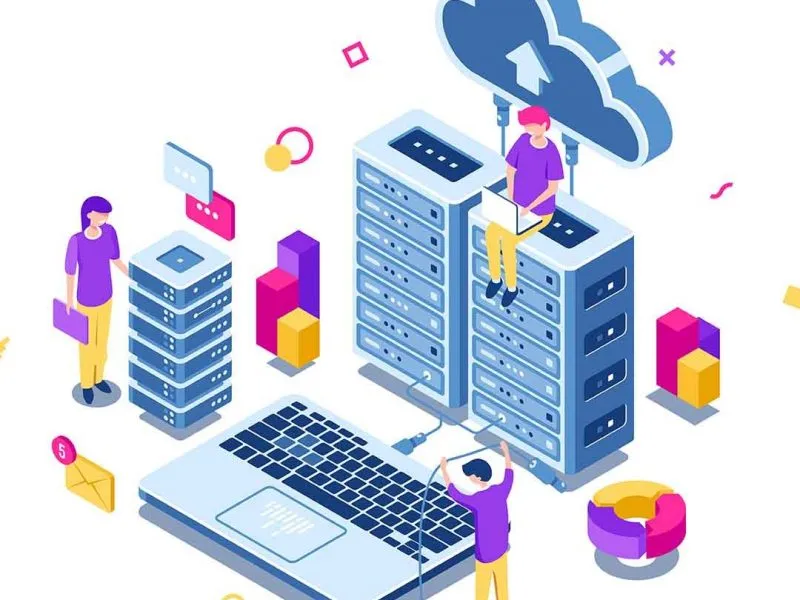
There is no argument on the topic that data has become the most important part of life in the 21st century. With an estimated 2.5 quintillion bytes of data being generated every day, there is a need to seek this data in an effective way to process it and to remove the insight which is needed.
The solution to this problem is DataBase Management System or DBMS
Before diving into why organizations need Database Management systems let us know the history of DBMS.
History of Database Management System:
The DBMS was first introduced in 1960. Along with storing and extracting data, DBMS allowed the user to change the data by inserting, deleting, creating, and controlling the data according to the user’s will.
As time passed, data became more specialized and complex. Due to this, there was a need for a database management system that could deal with the ever-evolving data. The world got its first relational database management system or RDBMS in 1970. This advanced and more sophisticated version of the database management system can store huge amounts of data in rows and columns and can access this data using database query languages like SQL.
After the advancement in RDBMS, numerous types of database management systems started to pop up, some of them are:
Document database: A kind of non -relational database designed for storing and querying data as JSON-like documents. Document database eases the developer’s process of storing and processing the data for a query by using the same document format used in the application code.
Our Services are Frontend Development | Web Development
ER model databases: A high-level data modeling diagram or entity-relationship modeling helps in analyzing the data in a systematic form to help design a perfect database
Graph database: A type of database based on NoSQL. A graph database replaces normal data with a table like a Graph for easy interpretation. It shows normal data in vertical format with edges to it. While the vertices represent a person or a place, the edges represent the relationship between the two nodes.
Network databases: This database model allows you to connect multiple members’ records and files to multiple owner files or vice versa. It is in the model of an upside-down tree with each branch showing the data of the owner and the name of the owner being at the bottom of the trunk of the tree.
NoSQL database: This is an alternate to the traditional relational database. A NoSQL database is very useful for working with huge distributed data. Unlike a normal SQL database which is in tabular format, the NoSQL database is in data-based, graphical, and wide column store form. Apart from this, there are multiple noticeable differences between normal SQL and NoSQL databases.
Importance of a database management system:
As we have read above database management system serves as the solution to the daily inflow of data that a company or organization gets.
There are many benefits when the data that is generated is handled efficiently and some of them are as follows.
Improved efficiency: Database management systems are very important to businesses because they help to handle the large amount and multiple types of data in an efficient manner.
This ability to handle data in an efficient way helps the organization to take important decisions in the shortest possible time and with ease.
Versatility: Database management systems offer great flexibility while using them. You can access a database management system from your computer, or from your tablet, or even from your mobile no matter what time or place it is. Allowing categorizing and structuring of the data: Database management systems allow the users to categorize and give a structure to the data that is generated.
For example, a database management system of a university can store a student’s admission information and also his or her’s grades and academic records.
Multi-access: A database management system allows different authorized users to access the data from different places at the same or different times to complete the different tasks which they have to perform.
For example, an HR manager can access an employee’s data to check his yearly increment and his payroll, and the same data can be accessed by the manager to increase the employee’s salary and the development team can access the same data to recruit a substitute for an employee who has been absent due to bad health.
Organized working environment: A database management system offers users the ability to create a better and smoother working environment in an effective way. A database language like SQL offers an easy way to update, access, and process the data that is stored in the database.
RDBMS vs DBMS:
The DBMS is the management system that came prior to the now-famous RDBMS or Relational Database Management System. RDBMS is much more famous than the traditional DBMS because of the following reasons:
ACID: Sometimes there are some inconsistencies faced while using traditional DBMS. This is because DBMS doesn’t follow ACID properties.
Atomicity: Ensures that the transaction takes place or not
Consistency: Makes sure that the database is always correct
Isolation: Ensures that several operations can be performed without causing any inconsistency in the database.
Durability: Ensures that once the transaction is complete, the data is saved in the database even if the system has failed.
Data access: On a classic DBMS only a single data can be accessed at a given point in time. Whereas with RDBMS we can access multiple data elements at any given time.
Data fetching: RDBMS offers quick access to data fetching due to its relational approach.
Relationship between data: in a classic database system there is no relation between the data. Whereas in a relational database management system the data is presented in a tabular form that is related to others using foreign keys.
Data Security: Security is the most important thing on the internet today. Whereas traditional DBMS doesn’t have any security systems and hence data theft is usually easy, on the other hand, RDBMS offers multiple levels of protection and security against these data thefts.
Conclusion:
At the end of this article, we have come to the conclusion that Database management systems are needed by an organization to work in a smooth and efficient manner because of all the above-mentioned advantages one can get by using it.







